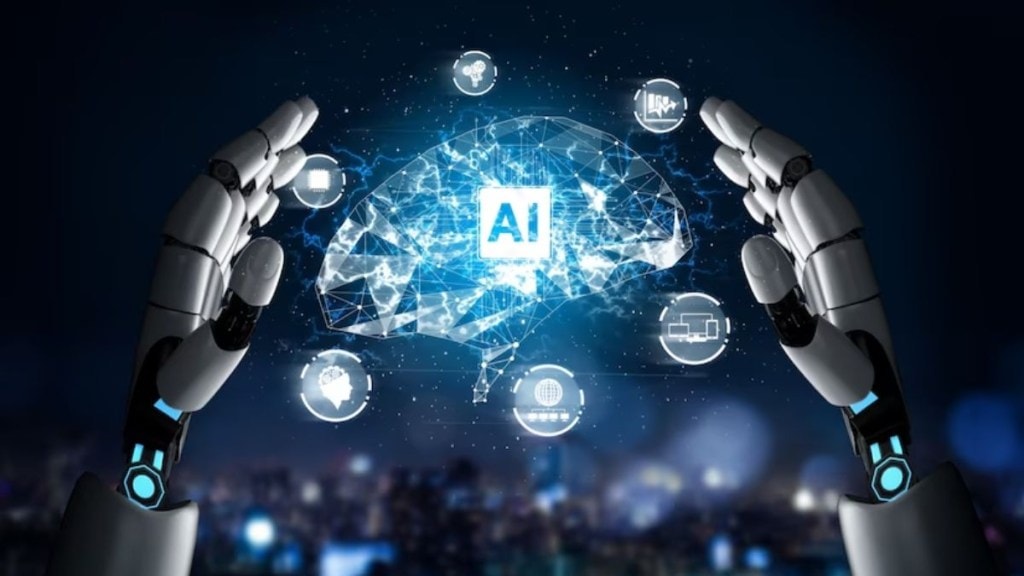By Siddharth Maheshwari
Artificial Intelligence (AI) tools and techniques have garnered the spotlight all over the world. AI products have vastly changed the way we live and work. Coupled with machine learning (ML), AI has ventured into realms previously reserved for humans, encompassing activities from data entry and customer support to piloting vehicles. With Generative AI, it has entered creative tasks like creating new content, including audio, code, images, text, simulations and videos.
In April this year, Microsoft, which has committed a $13 billion investment in OpenAI, released a research paper affirming that the initial iteration of OpenAI’s latest model demonstrated various characteristics of intelligence. These qualities encompass abstraction, comprehension, visual processing, coding capabilities, and a grasp of human motivations and emotions. Earlier this year, Nvidia, renowned for producing chips used in AI products, became one of the most valuable publicly traded companies in the United States due to the surging demand for AI chips.
As per a Grand View Research report, the global AI market will reach $390.9 billion by 2025. There are 4,969 AI startups in India, as per Tracxn, which also notes that investments in AI startups in India jumped from $1.7 billion in 2020 to $5.2 billion in 2022. According to Nasscom, as of May 2023, the Indian Generative AI landscape had more than 60 startups with more than $590 million in funding flowing into this space, with 2022 being the year with the heaviest funding inflow. In days of fast-evolving modern tech, AI powers nearly all critical systems worldwide, from fintech to health tech.
For instance, even popular platforms like RazopyPay and Paytm use AI to process payments. AI platform Avaamo helps in Patient Scheduling, providing patients with rapid and individualised help in healthcare. AI is handling complex contemporary challenges in virtually all digitised sectors. Integrating chatbots into the digital framework is now a ubiquitous solution, employed by all customer-facing departments. Such chatbots speed up tasks, respond to questions, and handle problems without any human intervention. Being the third largest talent pool for AI in the world, investments in India’s AI capabilities are growing at a CAGR of 30.8% and are expected to touch $881 million this year, mentions a report by Invest India.
While the concerns of job replacement linger, history tells us that technological advancements tend to create, not eliminate, opportunities. Just as when computers were first introduced, causing apprehension about widespread job displacement, we witnessed the evolution of new roles and industries. Similarly, with the rise of AI, there’s a parallel narrative unfolding. Prominent IT services firms make significant investments in employee training and development, offering first-rate facilities and educational programs for both newcomers and established staff. Those who foster a culture of continuous learning and skill enhancement will thrive in this swiftly evolving work landscape.
According to the World Economic Forum paper: Jobs of Tomorrow, there will be three key areas where job creation would happen. These new jobs will be the “trainers” shaping AI’s development, the ‘explainers’ designing interfaces for human interaction, and the ‘sustainers’ ensuring optimal AI utilisation.
In addition to streamlining processes that have mostly been time-intensive and manual in the past, AI provides profound insights into customer data and emerging trends. These insights can be harnessed to devise innovative marketing and product strategies. Moreover, AI assumes a critical role in bolstering cyber-security by detecting and preempting threats. According to McKinsey’s report on “What’s the Future of Generative AI”, applications like ChatGPT possess the potential to contribute as much as $4.4 trillion annually to the global economy.
However, it will be almost impossible for AI to master the quirks of Human language and interactions. The job industry is disruptive and ever-evolving. New jobs will keep emerging and Human contribution to work will always remain relevant. AI is poised to mainly add to employee productivity and further enhance our work lives. To remain relevant in this AI-driven world, it’s crucial to expand one’s horizons and focus on forthcoming opportunities rather than perceiving them as a job challenge.
Siddharth Maheshwari is the Co-founder of Newton School. Views expressed are personal.
